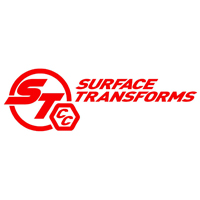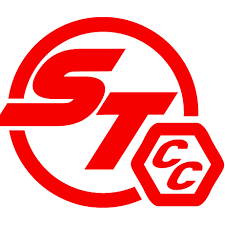Surface Transforms plc (LON:SCE) Executive Chairman David Bundred caught up with DirectorsTalk for an exclusive interview to discuss interim results, customer progress, forecasting a huge increase in output, avoiding energy price hikes and what this means for the financials of the business.
Q1: David, could you just tell us what was in the recent interim statement?
A1: Well, in summary, it said we’ve had a pretty busy six months.
We’ve restated that we’re going to be profitable this year, a huge breakthrough and it’s upgraded our forecast for ‘23 to ‘25. It referred to very considerable progress with the customers, reminding everybody we’ve gone into production, started production with three contracts in the first six months, including the all-important OEM8 contract. It’s reiterated that we’ve now delivered the first phase of our capacity, £20 million and all on plan for the second phase that brings us to £50 million sales. It has outlined why we are almost unique almost in not being affected by energy prices.
So, all in all a pretty busy six months.
Q2: Now, as you mentioned, it has been a while, but could you just update us on what progress has been made with customers since we last spoke?
A2: I think when we last spoke, we probably had about £20 million or £30 million worth of order book. In the last six months as the statement says our order book has gone from £115 million at the back end of last year to a £190 million now so we’ve now got an order book of £190 million pounds.
We’ve got in effect 10 live contracts with six customers and that spread of customers is something we’re very proud of and it’s going to get bigger so we’re quite encouraged by that.
Also, in this statement for the first time we’ve introduced what we call a prospective contract pipeline (‘PCP), it’s something we’ve used our ourselves internally for some time, but never talked about it publicly. Now, to make it into our pipeline, it’s got to be a known model with a realistic expected volume, it’s got to have a customer start of production date, that customer starts production data will be wrong by the way but at least they’ve got one. It’s got to have engineering activity and it’s got to have meaningful commercial discussions.
Now, on those strict criteria where you’ve got a £400 million prospective contract pipeline to add to our £190 million customer base, we’ve done well.
Q3: So, just on the back of that then, you are forecasting a huge increase in output? Can you do it?
A3: Of course we can.
The first point to make is that the first half of ‘22 was greater than the whole of ‘21 sales so we’ve got off to a reasonable start. I repeat what I said before, it’s all about capacity, it’s all about making sure you’ve got the capacity in place so that the capacity works.
We’ve installed our first phase one capacity and not without challenges and not without issues, but it works, and we’ve ordered all of phase two capacity and that’s going to come in from the next few weeks actually, progressively over till Easter. As I said before, we’ve got three SOPs and, on those SOPs, those production ramps, and by the way, they’ve always got their problems too so it’s never black and white. We’ve kept pace with the customer demand and, there have been no customer issues. Our task now is to get ahead to really nail down, use the extra capacity as it comes in in the new year.
Actually we’ve had our challenges, but one of the things that impresses me about the team in Surface Transforms is they’re darn good engineers and technicians. They look at the problems, they analyse it, use data, find out what the problem is and fix it and against that background, in summary, of course we can do it.
Q4: Why are you uniquely claiming that you’ll not be affected by the hike in energy costs?
A4: Whether it’s unique or not, I’m not going to claim, there may be other people around who are doing that, but certainly it’s unusual. In a nutshell there’s two issues, one very short term and one very strategic and much more important.
The very short term issue is we have fixed price contract, we’ve always had fixed price contracts for energy for as long as I can remember. We go out two or three years and I think our electricity contract runs out back end of this year, beginning of next year, I’m not quite sure which. The gas fixed price contract runs out in the middle of next year so we’ve got fixed price.
The more important issue is that we’ve had a plan to significantly reduce our unit energy costs for two/three years, if not more. When we first started looking at ESG and taking ESG seriously, we particularly focused on gas and electricity costs and wanted not to make a step change, to make a huge change in our gas and electricity costs. It became one of the key criterion in the selection of the phase two furnaces. The phase two furnaces significantly reduce energy costs, now those as those furnaces are coming in now, you’re seeing the benefit now.
We certainly weren’t prescient in thinking that the energy costs would explode and we get a benefit in en energy costs but I think we were certainly prescient in realising the global importance of reducing your carbon footprint and essentially that’s what’s happened and we’re getting the benefits.
Somebody said the other day to us, “oh, you’ve been lucky”, I think the reply was – wasn’t me who said it – but “sometimes in this world you make your own luck”.
Q5: What does all this mean for the finances of the business?
A5: Well, we’re an AIM company so of course, we don’t make forecasts, at least that’s the fiction. You have to read the analyst report, there were two analyst reports out yesterday, one from Zeus, one from finnCap and there’s another one out this morning from Hardman. The Hardman one is very available in the public domain, I think you just go on their website and get it.
You’ll see there the claims which I said in my opening comments, we will be profitable this year, we’ve upgraded our forecast for ‘23 to ’25. We’ve had an internal objective/mission which I’ve called our 20/20 vision which is a business growing at 20% a year in sales and making 20% on the bottom line. We’re well on the way to being 20/20.
As I said in the Chairman’s statement, these are exciting times for Surface Transforms, perhaps exciting doesn’t do it justice.


